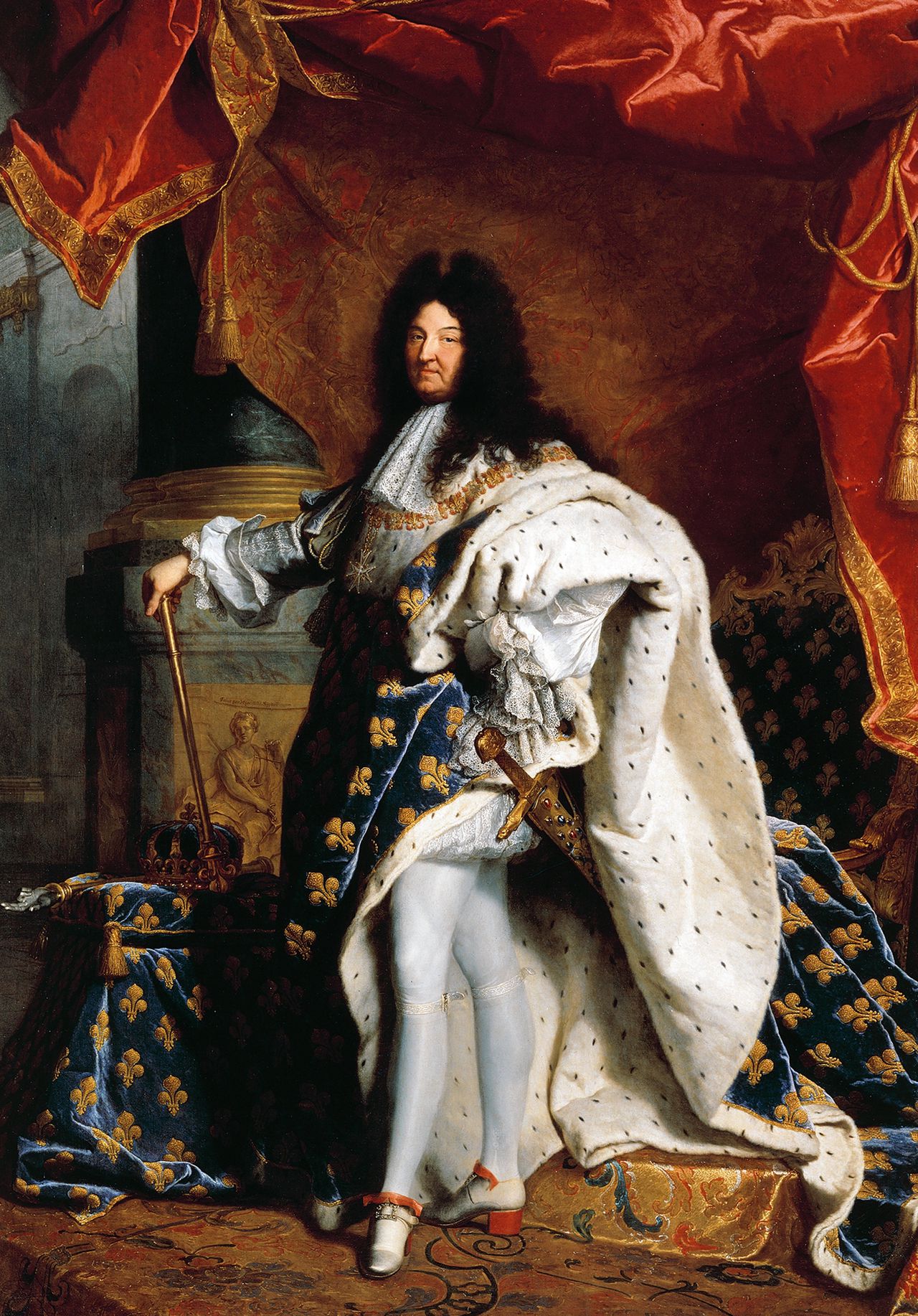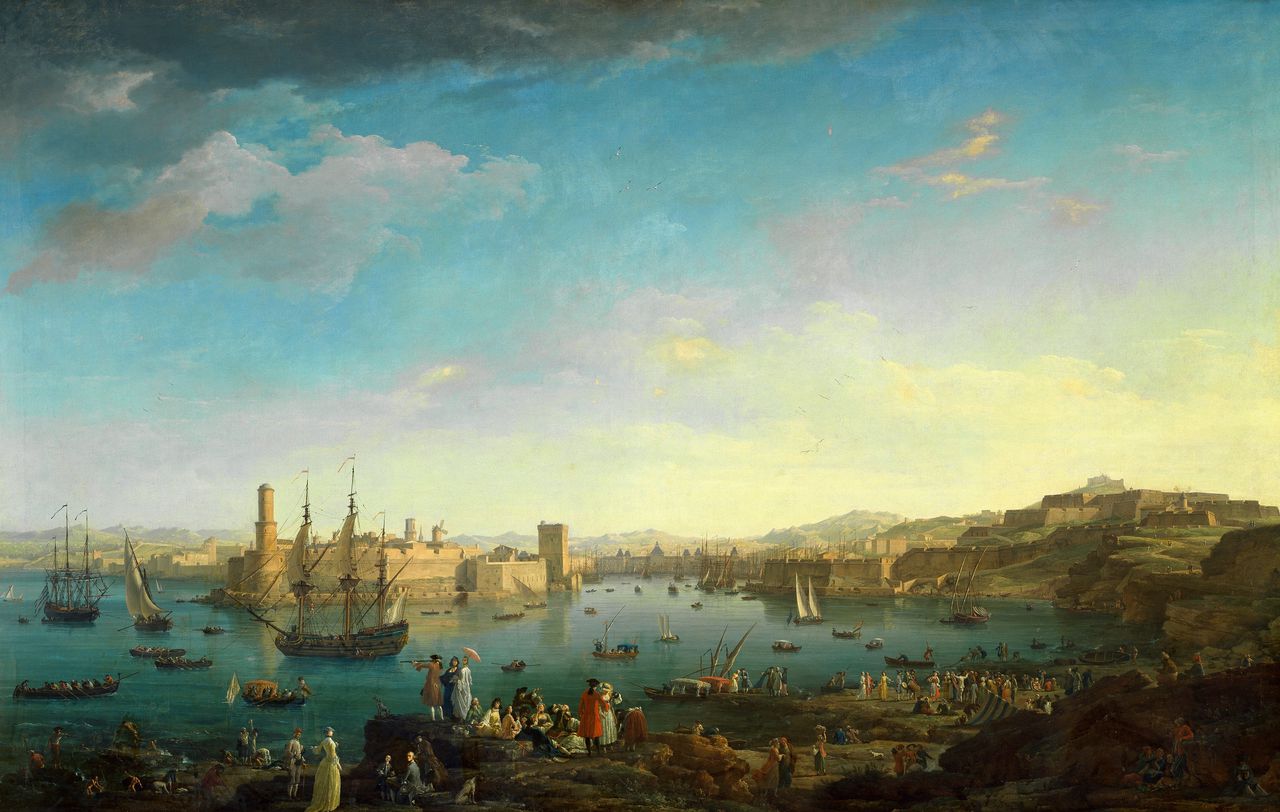Sun king Lodewijk XIV loved taxes, just like Trump, and the British built their ‘Empire’ on it

They abuse us: we do not earn anything, while they rake mountains of money by selling goods to us. There is only one thing on it: there must be import duties, so that our domestic production is stimulated.
Was signed: Donald Trump, on ‘Libaration Day’ 2025? No, this was the sentiment of the French Minister of Finance Jean-Baptiste Colbert when he hit the Republic of the United Netherlands in 1667 with substantial rates.
The United States has a long history of protecting their industry through import duties – Think of the notorious Smoot-Hawley Tariff Act of 1930 at the start of the Great Depression – But the lifting of rates on imported products has been happening for thousands of years.
In ancient Greece, for example, had to be in the fifth century BC. About all goods that entered the Athenian port of Pireaus a levy of 2 percent are paid. This tax was not intended as the protection of its own industry. Such taxes came in vogue from the end of the Middle Ages, when states imposed rates on the import and output of wool and woolen products In order to develop their own industry. Such protectionism became very popular in the seventeenth and eighteenth centuries.
The economic system of exporting your own products as much as possible and the minus importing as possible was given the name ‘mercantilism’, or – in the French case – ‘jacketism’.
The real hit
Contrôleur Général des Finance Colbert resorted to protectionism because of the stranglehold that the Republic of the United Netherlands had on the trade. The Dutch stuck the French industry with their favorably priced products. That country earned his export between four and six million annually livreswhile the Dutch with their exports to France no less than thirteen million livres upset. Colbert knows this difference « Their industry and our lack of intelligence ».
A king must prioritize the well -being of his subjects above that of his allies
This could no longer continue, he thought, if only because otherwise the endless wars of the Sun King Louis XIV could not be financed. Colbert announced his first taxes in 1664, but the real Klapper followed three years later. In 1667 he came up with a levy on the import of 57 goods: products such as sheet, soap, lace, leather and carpets. In some cases it was a doubling of the taxes from 1664, sometimes up to 20 percent of their value.
The Dutch were actually allies of France in their struggle with the English, but, according to Colbert, a king « must prioritize the well -being of his subjects above that of his allies. »
In The Hague they didn’t think so easily about this. There, the taxes of the French were seen as a declaration of war, one TARIF THE COMBAT. Arnauld de Pomporre, the French ambassador in the Republic, wrote after a maintenance with council pensioner Johan de Witt to Colbert that this Dutch politician had threatened with a boycott of French goods. Colbert showed himself carefree: « They are more bothered by that than we do. »
In the meantime, he tried to appease Coenraad van Beuningen, the Dutch ambassador in Paris. The Republic really didn’t have to worry, said Colbert. « Your fears are fantasies, because it is impossible that the trade of this Kingdom, weak as it is, and with the defect a industry and diligence in this area of the King’s subjects, could once cause some damage to such large and powerful traders as the Dutch. »
Some Dutch people humiliated citizens who kept selling and buying French where-a similar fate that Tesla owners are now affecting
Import of brandy
Van Beuningen was not put in the Luren and introduced the States General to hit back. In a final attempt to prevent a trade war, The Hague sent diplomat Pieter de Groot to Paris to sing the blessings of free trade once more. Colbert faced his arrival with confidence: « De Groot must be very eloquent if he wants to seduce the king to adjust one of the taxes to the goods from his country. » Louis XIV « was not impressed » of the Dutch threats, his minister saw.
That turned out, because after his audience, the Dutch envoy did not hear from the Sun King anymore. The States in The Hague drew the inevitable conclusion: at the beginning of 1671 the Republic announced a series of taxes. The import of Brandewijn was forbidden and there were substantial taxes on French salt and nijverhijdproducten. The French hit back with extra levies on herring and spices, as a punishment for the « shameless regions » of the Dutch: the trade war was a fact.
The Dutch levies on French products sometimes amounted to 50 percent, but did not seem to have a lot of impact immediately. That is why some people passed over citizens to humiliate French where to sell and buy -A similar fate that Tesla owners are now affecting.
A real war came from this trade war (and a number of other geopolitical issues) in 1672. Lodewijk XIV invaded the Republic in what history would go as ‘the disaster year’. The Dutch were just able to escape the complete downfall and France won a lot of territory. However, the Republic also achieved an important result in the negotiations that led to the Peace of Nijmegen in 1678: the hated rates of 1667 were deleted.

The British Empire
That success could not prevent the position of the most powerful trading nation to be taken over by England. That country had also had in Leiden under Colbert’s import duties, but would now build its industry behind a wall of taxes and conquer the whole world with its products. Mercantilism was in the cradle of the British Empire.
Also for the English the commercial success of the Republic had been a reason to proceed with protectionist measures. The English parliament adopted a number of trade laws in 1651 that had to ensure that the country could pass the Republic by « by weakening their shipping and denying them their treasures and coins so little by little ». If that did not happen, the Dutch would « become masters, from both our money and our trade. »
That was of course intolerable for the English. The accumulation of gold and money was the crux of their economic politics. Their colonies became increasingly important for that. Raw materials-often obtained through slavery-came from all over the world to Great Britain, where they were processed into products, which were then exported again. Just like the French, the English waged several wars to secure their trading position, including four against the Republic.
Under Prime Minister Robert Walpole (government 1721-1742), British Mercantilistic politics reached its peak. He increased the taxes on French linen and sides, subsidized these industries in his own country, forbade the export of Irish textiles and made it difficult to import textile from India. He also opposed the execution of hats (!) From North America-not only to Great Britain, but also to ports in other colonies.
Walpole had the support of the political and business establishment for a long time. The export of English goods, according to a trader at the time, was a way to « earn a lot of gold and silver » and would « yield a larger fountain of riches than gold and silver from India ever ».
From the middle of the eighteenth century, Mercantilism got more and more criticism. First of the Scottish philosopher David Hume and later from his countryman Adam Smith, who in 1776 his famous book An Inquiry Into the Nature and Causes of the Wealth published. (He came up with the term ‘mercantilism’) money was one resourse To facilitate trade, Smith believed, but collecting as much money as possible was not it goal of that trade. He compared money with a road: it has no value of himself, but only gets it when goods are transported about it.
Free trade
Smith was no longer interested in a trade balance, positive or negative. « The purpose of trade is to exchange your goods for others you prefer, » he thought. « Our desire to buy them shows that we can use those goods better than money or the goods for which we have exchanged them. »
In principle, countries benefited from as much free trade as possible, Smith concluded. Free trade has since been something that many states strive for – although barriers are still being raised in the form of taxes in times of economic headwind or in the development of new industries.
Sometimes this sometimes happens without a very clear reason, as in the US on Liberation Day 2025.

/s3/static.nrc.nl/images/gn4/data133314127-765aec.jpg)
:format(webp)/s3/static.nrc.nl/wp-content/uploads/2025/06/05163439/data133217982-f902a2.jpg)
/s3/static.nrc.nl/wp-content/uploads/2025/06/06205808/web-0606BINspermadonatie.jpg)




